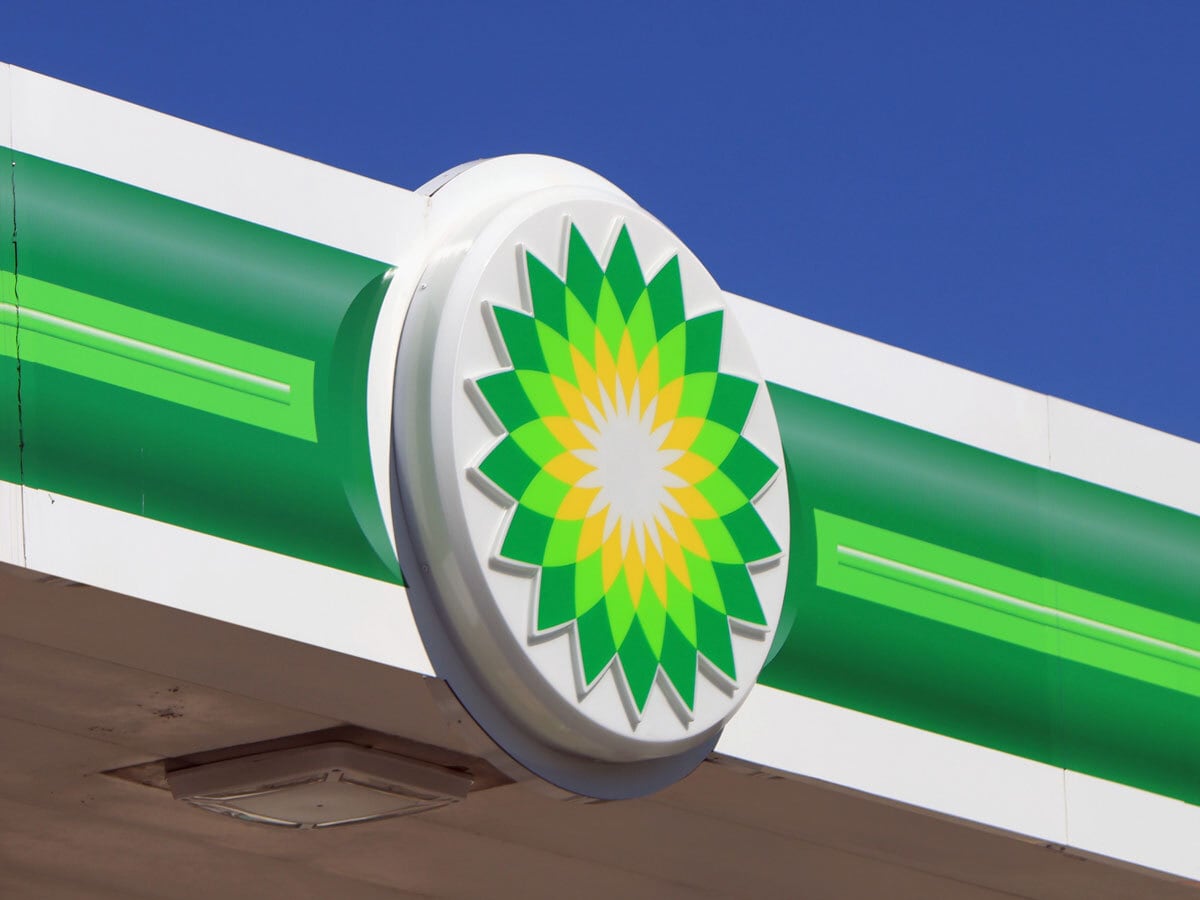BP’s share price has been a standout performer in 2022 as high oil prices have led to bumper profits. However, in the long-term, the energy giant is hoping to become a leader in renewable energy — an initiative that will take time and plenty of investment.
BP’s [BP.L] share price has been a standout performer on the FTSE 100 in 2022. Year-to-date, BP’s stock is up 45.51%, closing Friday 2 December at 480.9p — a performance that is on par with rival’s Shell’s [SHEL.L] 46% gain this year, and lightyears ahead of the FTSE 100’s sputtering 2.36% rise.
Bumper profits have been fuelled by high energy prices experienced since Russia’s invasion of Ukraine. BP raked in $8.2bn in underlying replacement cost profit, used as a proxy for net profit, in the third quarter of 2022. That was a significant improvement on the $3.3bn profit made in the same quarter last year. The strong results saw BP announce further share buybacks.
BP share price resilient as oil prices fall
Yet, over the last month, BP’s share price has dipped 2.6% and Shell’s is down 4.4%. Considering crude oil prices are down substantially from their March peak, investors may be forgiven for wondering why these stocks haven’t faced steeper declines. On Friday, Brent crude was trading for $85.57 a barrel, a long way off the $127.98 a barrel hit on 8 March, according to data from Oil Price Charts.
One explanation is that energy bulls think that energy scarcity will carry into 2023 and supply will continue to be tight, driving up prices. MorningStar’s David Meats told CNBC that “the logic is investors think oil markets will remain tight indefinitely”. Prices are also still higher than they were last year when a barrel of Brent crude cost $73.03.
Tight supply going into 2023 — or at least its perception — could benefit BP’s share price. However, the longer-term investment case is likely to sit with the shift to renewable energy.
BP continues to shift to renewables
Under chief executive Bernard Looney, BP has said it will cut its oil and gas production by 40% by 2030 from 2019 levels. At the same time, it plans to boost its renewable output 20-fold to 50 gigawatts by 2030, either through building its own infrastructure or via acquisitions. In October this year, BP said it would pay $4.1bn for US biogas producer Archaea for $4.1bn.
“We remain focused on helping to solve the energy trilemma — secure, affordable and lower carbon energy. We are providing the oil and gas the world needs today, while at the same time investing to accelerate the energy transition,” Looney said in a statement accompanying the firm’s third quarter earnings.
Part of this shift could include BP ending its 70-year publication of its Statistical Review of World Energy, reports Reuters. The Statistical Review is an industry-wide resource that provides data on global oil, gas and coal production.
In recent years it has been expanded to include renewable energy data. A source told Reuters that publication of the review could be “detrimental” to the company’s new direction, with another source saying it was “bad PR”.
Still, BP’s energy mix is unlikely to be free of fossil fuels for some years to come. And the drive to renewables depends on high investment made possible by BP’s strong cash flow. Should oil prices slide next year, then BP could have less to invest.
Another headwind is the calls for aggressive taxation of the energy industry. In the UK, BP is expected to pay around $2.5bn in taxes from its North Sea business in 2022, including $800m due to the government’s energy profits levy. Windfall taxes, either here in the UK or abroad, could weigh on earnings next year.
Citi analyst ups target on BP
Citi analyst Alastair Syme wrote that BP has “decent growth characteristics” in a note to investors last month. Syme upped his rating on the stock from ‘neutral’ to ‘buy’, to go with his 540p price target. The analyst said that BP had a better valuation than its European peers and that a “market rotation into energy equities” had further to run.
“Growth is one aspect that we believe BP can start to differentiate around versus large-cap European peers; we forecast underlying growth almost 2x that of closest peer SHEL,” wrote the Citi analyst.
Among the 23 analysts polled by Refiniv, BP has a 12-month median target price of 549.16p, which would see a 14.19% upside on Friday’s close.
Disclaimer Past performance is not a reliable indicator of future results.
CMC Markets is an execution-only service provider. The material (whether or not it states any opinions) is for general information purposes only, and does not take into account your personal circumstances or objectives. Nothing in this material is (or should be considered to be) financial, investment or other advice on which reliance should be placed. No opinion given in the material constitutes a recommendation by CMC Markets or the author that any particular investment, security, transaction or investment strategy is suitable for any specific person.
The material has not been prepared in accordance with legal requirements designed to promote the independence of investment research. Although we are not specifically prevented from dealing before providing this material, we do not seek to take advantage of the material prior to its dissemination.
CMC Markets does not endorse or offer opinion on the trading strategies used by the author. Their trading strategies do not guarantee any return and CMC Markets shall not be held responsible for any loss that you may incur, either directly or indirectly, arising from any investment based on any information contained herein.
*Tax treatment depends on individual circumstances and can change or may differ in a jurisdiction other than the UK.
Continue reading for FREE
- Includes free newsletter updates, unsubscribe anytime. Privacy policy





